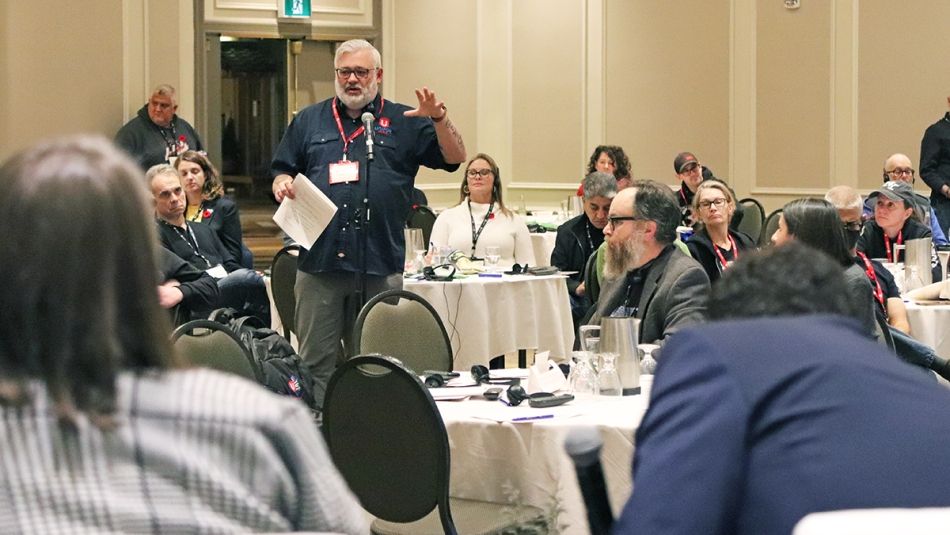
Share
Unifor's recent conference, "Climate Change and Our Jobs; Building an Economy where no Worker is Left Behind," brought together union members and experts to discuss the intersection of labour, environment, and economic policy in the context of the ongoing climate crisis. The conference featured a variety of speakers and panels addressing different aspects of climate change and its implications for workers.
On Friday, a panel featuring Benoit Potvin, President of Unifor Local 2005; Jessica McCormick, President of the Newfoundland and Labrador Federation of Labour; Gil McGowan, President of the Alberta Federation of Labour; and Angella MacEwen, Senior Economist for Broadbent Institute and CUPE; delved into the importance of not just creating green jobs, but ensuring they are good, unionized positions. The discussion highlighted the need for thoughtful planning in transitioning to a greener economy, with references to historical transitions like the collapse of the cod industry in Newfoundland and Labrador.
Sessions included a discussion on Bill C-50, the Sustainable Jobs Act, with Unifor researchers Sune Sandbeck and Simon Lavigne outlining the components of the bill and the need for job preservation alongside job creation. An auto industry panel noted the challenges and opportunities in transitioning to electric vehicles, emphasizing the strong commercial demand for electrified vehicles.
In a subsequent panel discussion, the transformation of the energy sector during the transition to a low carbon economy was explored. This session underscored the importance of integrating climate considerations into collective agreements. It was also emphasized that public funding for just transition initiatives must come with “strings attached” to guarantee the public receives value for its investment, especially for protecting or creating good jobs.
Other guests from academia, the U.S. labour movement, and various environmental non-governmental organizations (ENGO) weighed in on the struggle abroad and how the labour-ENGO alliance has been critical for effective lobbying on Parliament Hill and elsewhere.
The conference's final day began with Unifor Secretary-Treasurer Len Poirier highlighting the critical role of collective bargaining in driving meaningful change. Workshops focused on practical steps for workplace initiatives, emphasizing the need to transform and compensate workers in the shift towards a sustainable economy.
Throughout the conference, a recurring theme was the necessity of union involvement in shaping a pro-worker, pro-climate agenda. Speakers from various backgrounds stressed the importance of public investment in infrastructure, the power of collective action, and the potential of workplace initiatives in combating climate change. As the conference concluded, delegates were left with a clear message: the fight against climate change is not just an environmental issue but a labour issue, and it requires the collective effort of workers and unions to drive lasting change.
The next Climate Change and Our Jobs conference will likely be in 2025. In the meantime, Unifor’s National Climate Taskforce will continue its work and will share its final report at the 2025 Convention.


